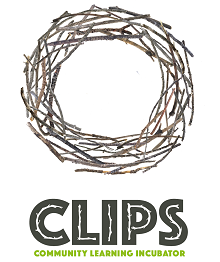Purpose and background
The Community Compass has been developed by the founders of Sieben Linden Ecovillage. After successfully establishing this project and working as consultants for other communities for many years, they were looking for a framework that explains in an easy way all aspects that are important to support the development of communal projects.
Brief Example of the Model:
The Community Compass identifies seven aspects that are crucial for the development of communitarian projects. These seven aspects serve as a memory-aid and framework for analysing the project and for identifying and better understanding problems in the community development.
Seven Aspects
The seven crucial aspects for community development
Individuals, Community, Intention, Structure, Practice, Harvest and World.
The main assumption is that successful community projects need attention, competence and conscious focusing on all these seven aspects. The duality of the Individuals in Community has a central position in the model.
All aspects are important and influence each other, but weaknesses in the other aspects than Individuals and Community can be irrelevant for some projects or can be compensated by the other aspects, whereas weaknesses in the fields of individuals and community will almost always weaken the project as a whole.The key for the success of communitarian projects is to see Individuals and Community not as opposites that are in competition with each other, but as two sides of the same coin that mutually complete and strengthen each other.

Individuals
The core concept of the aspect of Individuals is the fact that thriving Communities need conscious individuals.
They need individuals that are working on their personal growth, individuals that are able to see difficulties and conflict not (only) as annoying obstacles on their personal path, but as well as chances to learn through the feedback of the environment.
Community
Concerning the aspect of Community, the most important message of the Community Compass is that the spirit of Community needs active fostering. It‘s important to work on creating a community culture of trust and respect. Places for deep sharing of personal experiences are a very important tool for creating this community culture. A conscious dealing with conflicts and with the questions of rank and power are important.
Intention
Any project that wants to have an impact, needs to be clear about its intention. People that get together for realising a project should be aware of the question if they really share the same intention and take time to explore this.
In Forum, the issue of the individual is always seen as an example of an overarching human theme. Each individual, who comes into the Forum, is made aware that her issue is deeply related to others from the same culture. Understanding this, we can learn to detach from our personal problems, and rather witness them as being connected to a wider field. In these ways, personal transformation is not only a personal issue, it is a necessity for cultural transformation.
Structure
A community project needs to give itself a structure that suits to its intention. It is important to be clear about how decisions are made, who has the right to decide what on which basis. Transparency of the power structure itself and of the meetings and decisions is important. A very crucial aspect for communities that share houses and or land together is the question of property and legal organisation.
Practice
The field of Practice is a vast one and therefore, not much is said much about it at this stage. It contains all the work that is needed to get the project „on the ground“ – this includes the physical work as well as funding the place and organising the finances.
Harvest
This aspects contains everything that has to do with reflecting and enjoying the results of what has been done. It is an important aspect that is often neglected by activists projects. It encompasses the evaluation of ongoing and finished projects, the appreciating of the contributions of everyone and as well the moments of celebration when an important step has been reached.
World
All projects happen in this world and usually want to have an impact on it. Therefore, it is important to position the project within society and to look for partners and networks. This will prevent from „stewing in one‘s own juice“ and will strengthen the project.
To work as much as possible in cooperation with all potential stakeholders and to gain them as partners rather than to see them as opponents is one of the crucial messages of the Community Compass concerning the topic of „World“.
Outcomes / Benefits, Influence on the 4 layers of CLIPS:
The Compass is a sister-model to CLIPS that has inspired the development of CLIPS and CLIPS has influenced the development of the Compass. The content of both is almost identical. The difference is that in the compass, there are two more core-aspects identified. In CLIPS, these two aspects are part of the other layers in CLIPS: Harvesting in the Compass is seen to be a different category than the 5 layers and is integrated in the Individual and Community Layer, and the World-Aspect can be found in intentioning (Positioning in Society), structure (legal forms), and Practice (Advocacy work, applying for funding or fundraising). fosters personal growth, trust and the development of a community culture that is transparent, respectful and self-responsible.
What is needed to put it in practice?
Community Compass is an holistic model that can be applied the same way as CLIPS can be applied, both models use the same methods.
Further Information - Possibilities to get training in the approach.
There are trainings for the Community Compass in Germany, in ZEGG and in Sieben Linden Ecovillage, in 2020 only in German. For 2021, an English-speaking training is planned in Sieben Linden Ecovillage.
An English article about it can be found here
Informations about trainings in Community-Compass can be found here.

